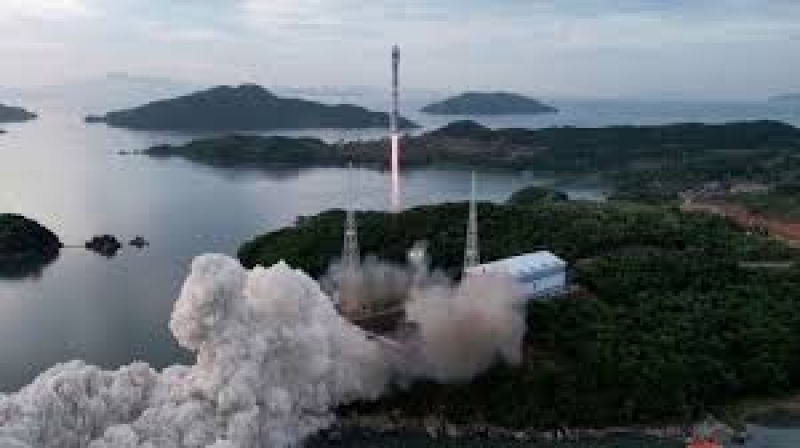- Puppet show enchants Children as Boi Mela comes alive on day 2 |
- DSCC Admin Salam’s drive to make South Dhaka a ‘clean city’ |
- 274 Taliban Dead, 55 Pakistan Troops Killed |
- Now 'open war' with Afghanistan after latest strikes |
- Dhaka's air quality fourth worst in world on Friday morning |
North Korea plans third spy satellite launch attempt

North Korea has notified Japan that it plans to launch a rocket carrying a military satellite in the direction of the Yellow Sea and East China Sea, the Japanese government said on Tuesday.
The third attempt to send the reconnaissance satellite into orbit — following two failed attempts earlier in the year — is set to take place at some point between November 22 and December 1.
Japanese Prime Minister Fumio Kishida said Japan was coordinating its response with its partners South Korea and the US, and that the use of any ballistic missile technology would be a breach of UN resolutions.
How did North Korea's neighbors react?
North Korea notified Japan, as the coordinating authority for the International Maritime Organization for those waters, of its plans all three times.
Kishida condemned the announcement and said he had instructed government agencies "to make utmost efforts in collecting information and providing it to the Japanese people, to demand cancellation of the launch in cooperation with relevant countries, and to make utmost efforts in preparing for unpredictable situations."
South Korea responded to the announcement by warning its northern neighbor against carrying out the planned launch. It also issued a sail warning.
"We sternly warn North Korea to... immediately suspend the current preparations to launch a military spy satellite," Kang Ho-pil, chief director of operations at the South Korean Joint Chiefs of Staff, said Monday.
"If North Korea goes ahead with the launch of a military reconnaissance satellite despite our warning, our military will take necessary measures to guarantee the lives and safety of the people," he added.
The announcement also coincided with the arrival of US aircraft carrier Carl Vinson in the South Korean port of Busan. The vessel had been sent to increase preparedness against missile threats from Pyongyang.
North Korea's satellite plans
The launch follows a rare trip to Russia by North Korean leader Kim Jong Un in September. He visited a modern space launch center, where Russian President Vladimir Putin said he would assist Pyongyang with building satellites.
North Korea wants to put a military spy satellite into orbit, as it wishes to monitor moves by US and South Korean troops.
Since North Korea conducted its first nuclear weapons testin 2006, the UN Security Council adopted several resolutions calling for it to halt nuclear and ballistic missile programs.
Earlier this week, North Korea denounced the potential US sale of hundreds of missiles to Japan and South Korea, saying it would raise tensions in the region.
North Korea has earlier made attempts to launch "observation" satellites, of which two appeared to have successfully reached orbit including one in 2016. However, Seoul officials have raised doubts about whether they are transmitting any signals, reports DW.

